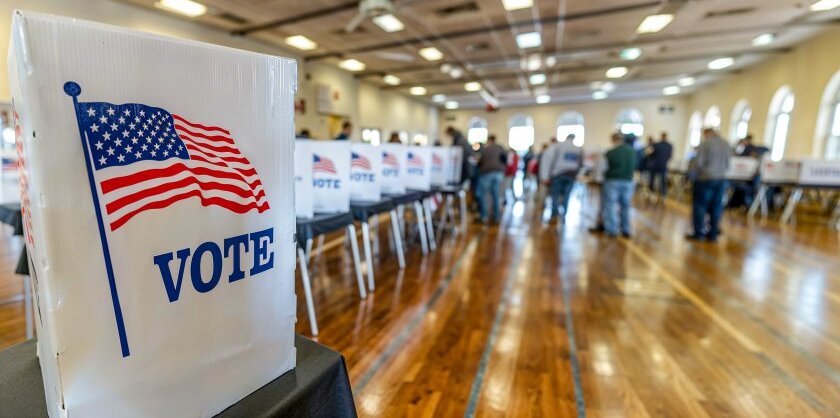What’s happened in Wyoming illustrates how closed primary elections shut too many voters out of the electoral process, intensify political polarization and raise important questions about funding these elections.
Republican gubernatorial hopeful Perry Johnson wants Michigan to stop printing ballots for the August primary while he tries to overturn his disqualification from the race. A federal judge denied Johnson’s request on Monday.
Every candidate running for Wyoming’s secretary of state has said election integrity was their top priority, even as several of the candidates believe the state’s 2020 elections were without fraud.
The state’s Commission for Human Rights has claimed that visually impaired voters were not provided sufficient accommodation for the U.S. House primary race, the state’s first all-mail election.
San Francisco recalls progressive District Attorney Chesa Boudin. California Gov. Gavin Newsom and Sen. Alex Padilla seem to be on a glide path to victory in November. Meanwhile, all eyes are on the Latino vote.
Gov. Chris Sununu signed a law on Tuesday that will require vendors to program vote-counting machines to automatically divert ballots that appear to have too many marks for a single office.
A report from the U.S. Cybersecurity and Infrastructure Security Agency found the devices have security vulnerabilities that put them at risk for cyber attacks. Other voting equipment may be similarly at-risk.
Last week, the Maryland governor made decisions on hundreds of remaining bills the General Assembly had passed in the 2022 session, including legislation on abortion access, early vote counting and absentee ballot signatures.
To meet the daily benchmark set by the Oregon secretary of state, election officials would have needed to hand-copy 8,000 ballots on Wednesday; they only processed 2,400. The county estimates it still has 35,000 ballots to duplicate.
Ken Paxton shows how it's done. Meanwhile, five Michigan candidates for governor are disqualified for submitting forged signatures and a reminder why it's so hard to beat incumbents.
Many communities across the country are experiencing big changes to voting procedures due to redistricting. Election officials and groups are working hard to update voters to ensure their voices are heard.
A minor change to the state’s registration website instantly fixed the automatic voter registration system, which had been broken for 15 months. April saw a 45 percent increase in registration applications.
Issues ranging from severe paper shortages to cyber threats and disinformation are looming ahead of the 2022 elections, threatening voter confidence. Officials shared their concerns with members of the U.S. Senate May 19.
Several county clerks claimed that state Rep. Daire Rendon requested access to the voting tabulators after the 2020 general election. State police and the attorney general have begun investigating election machine access.
The state’s new law will increase penalties for voter fraud, expand election audits, create a voter fraud hotline and ban third-party funding of elections. GOP lawmakers are hopeful that it will make it “harder to cheat.”
The result highlights extremist tendencies growing within the Republican Party, which may boost the general election prospects for Attorney General Josh Shapiro who won the Democratic nomination for governor.
Most Read















